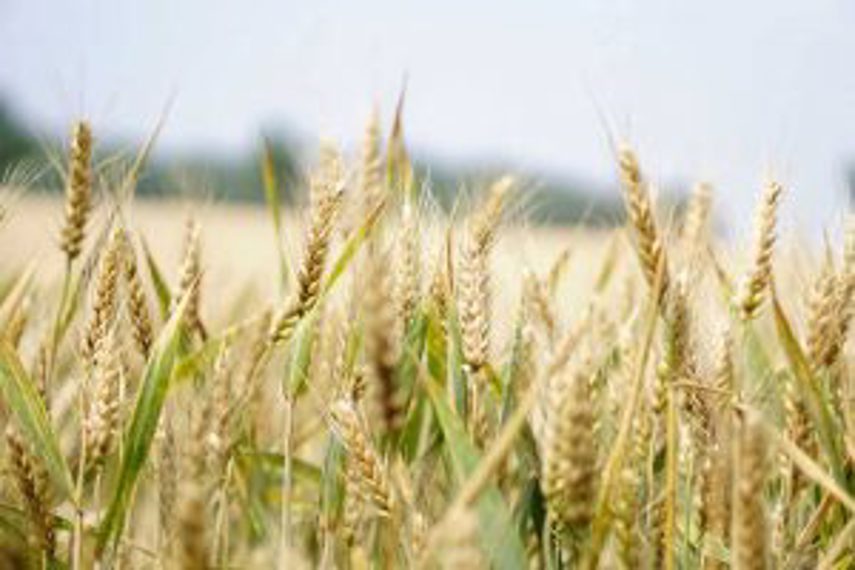
Over a third of the world’s food produce and products are wasted. Food waste accounts for eight percent of global greenhouse gases and has significant environmental and economic impacts. According to the UN’s Food and Agriculture Organization 1.3 billion tonnes of food – over $9 billion worth – goes to waste each year. About 40% that waste happens at the end of the supply chain – either in the form of consumer or commercial food waste. However the remaining 60% of waste happens further up the supply chain, meaning that food businesses looking to improve their financial performance, tidy up their environmental impact – or both – have a significant opportunity to improve. Let’s look at how smart food businesses can reduce their waste – and how the right food manufacturing software helps them do it.
What is food waste management?
Food waste can be caused by inadequate processing, production waste, poor food handling, perishability factors, environmental events, loss during transport and harvesting, or because food simply doesn’t make it past the farm gates. Sustainable food waste management therefore looks at strategies to reduce waste where it occurs, before it occurs. Sustainable food waste management employs tactics to reduce the impact of food waste from both an environmental and economic perspective.  Food waste occurs at all levels of the supply chain.
Food waste occurs at all levels of the supply chain.
How can food and beverage manufacturers reduce their waste?
Food waste can seriously impact the profitability of food and beverage manufacturers, particularly given the perishability of foodstuffs and the often-stringent regulation and controls around food handling. The following five strategies can help food and beverage manufacturers to manage and reduce their food waste:
1. Improving food inventory control
The simplest approach to reducing food waste is to optimise inventory control. Effective inventory control can prevent food waste by helping limit the volume of surplus food generated, reduce overstocking, and improve overall food waste management. From reducing the quantity of on hand foodstuffs to JIT inventory control – or less food delivered more frequently – optimising inventory control assists businesses to better manage food waste and reduce it at the source. For example the Raven Food Co-op, a Warsaw-based food cooperative is committed to preventing food waste before it occurs. Improving inventory control to limit waste where it can and using various strategies from selling produce at massive discount to redistributing food products to staff, co-op members, clients and the local community, Raven has managed to significantly reduce food waste comparative to other retailers.
2. Feeding the community
Food donation programmes allow business to donate surplus stock or food products that while not fit for sale, are still safe for consumption. Community groups, local food banks and soup kitchens collect and redistribute foodstuff to people in need. These initiatives contribute a valuable service to those in need, as well as reducing the volume of food waste that would otherwise end up as landfill. Ozharvest is Australia’s leading food rescue organisation. Collecting surplus food from registered businesses, they deliver it directly to charities and provide food relief for individuals and people in hardship. In addition to their sustainable food waste management activities, and innovations, Ozharvest also undertakes education to promote positive change.
3. On-selling food waste as animal feed
The age-old practice of a ‘slops’ bin as a common feature in restaurants, cafeterias, and school canteens was largely banned following an outbreak of Foot and Mouth in the UK, 20 years ago. The risk of spoilage and spreading of disease meant local farmers could no longer collect the ‘pigswill’ to feed their livestock. However with better strategies around the collection of food waste for farm feed we may see ‘slops’ bins make a comeback. For example in Japan foodstuffs and by-products containing animal-origin protein undergo rigorous treatment to kill the pathogens that cause disease. Stringent controls on supply, labelling, storage, and transportation help to counter the risk of cross-contamination. This has resulted in swill-fed pork being marketed at a premium. It is sold under the label of ‘eco-pork’, in recognition of the waste and greenhouse gas emissions it avoids.
4. Industrial food waste management
Industrial food waste management involves recovering energy from food waste through techniques such as anaerobic digestion, which helps recycle food waste into energy and fertiliser. Innovative new industries and enterprises are converting coffee waste into flour products and transforming bio-waste into fuels. Spent coffee grounds are also being converted into pellets, to create a source of renewable fuel that can be used in wood-burning stoves. In New Zealand, for example, two companies – Pioneer Energy Ltd and Ecostock Supplies Ltd – are currently in the process of building the country’s first large-scale food waste-to-bioenergy facility. Based on circular economics principles, the anaerobic digestion facility will harness innovative technology to help power up local glasshouses and the local community, while also enriching local farmland.
5. Commercial composting
Local governments are increasingly introducing composting bins to separate food waste from general waste. Recycling initiatives include the composting of coffee grounds for use as soil fertilisers, conditioners, and mulch. Coffee waste is also an excellent substrate for mushroom cultivation. A student-run farm in Pennsylvania, the Dickinson College Campus Farm composts all food waste from the college campus, partnering with the facilities management team to ensure that campus food waste and paper products are all composted.  Unused food is increasingly being turned into bio-energy or other non-food products.
Unused food is increasingly being turned into bio-energy or other non-food products.
What is waste valorisation?
Waste valorisation refers to the process of reusing, recycling, or composting waste materials. The waste materials are then converted into new more useful products instead of it heading to landfill. The valorisation of food waste in biotechnological processes recovers and recycles valuable nutrients from food waste. Valorisation processes use chemical and biological methods to produce biofuels, and other sources of energy. Food waste management through valorisation is an environmentally friendly waste management strategy. Together with other green technologies, valorisation reduces problematic waste, creates a value-add to products created from repurposed waste, and contributes to sustainable food waste management.
What services are available to reduce food waste?
There are a growing number of public, private and community initiatives aimed at reducing the associate environmental and economic cost of food waste. Available services range from educational resources to better product labelling, food rescue initiatives and improved waste tracking using inventory control technology. Many governments have established national food waste strategies to curb the tide of food waste that is reaching landfill.
- The French government has made it mandatory for all businesses to recycle organic waste if they produce at least ten tons per year. In 2016, France became the first country to ban supermarkets from binning unsold food requiring them instead, to donate all surplus food to food banks and charities.
- In 2018 Australia became the first country to set a target to cut its food waste in half by the year 2030. To help achieve this goal the Australian Government invested 1.2 million dollars over the last two years to support food rescue organisations such as FareShare, OzHarvest, Food Bank Australia and Second Bite.
- In addition to these food rescue organisations there are businesses such as Ecostock offering sustainable waste management solutions. These private sector firms collect food waste from SMEs, manufacturers, food importers, and supermarkets and undertake sustainable waste disposal processing, composting, and recycling waste using certified procedures.
- There are even Apps such as ‘Foodprint’ in Auckland and the Melbourne-based ‘Bring me Home’. The apps help SMEs at a local level by connecting consumers to various eateries and food outlets around the city. Customers can purchase surplus food (that would otherwise be thrown out) at discount prices and can even reserve meals to be collected at an allotted time.
 More efficient use of food products and ingredients helps a business’ bottom line.
More efficient use of food products and ingredients helps a business’ bottom line.
How does food waste management help businesses?
Food waste management helps SMEs on many levels. Waste reduction means that resources are being used more efficiently, it improves productivity, and enhances inventory control. Less waste means lower cost and lower cost means better profitability. Governments are increasingly introducing regulations and legislation towards improving overall corporate social responsibility, sustainability, and environmental impacts of businesses large and small. Consumers now expect that businesses are more sustainable in their daily operations making sustainability a growing driver of consumer decision-making and purchasing behaviours. SMEs that demonstrate sustainability measures can improve their marketing and sales activities. Sustainable food waste management is one step that businesses can take to help achieve this.
How is food waste management certified?
The International Organisation for Standardisation (ISO) is responsible for developing and publishing international standards. ISO certification provides the same level of certification globally and works within an array of sectors including food, health and safety, energy, renewables, and more. AS/NZS ISO 14001 a standard of environmental management that enables SMEs to assess their environmental impacts, to plan and to set goals that reduce their businesses impact on the environment. Sustainable Certification makes it possible for SMEs to improve their operational standards and benchmark them against industry best practices. It assures suppliers, retailers, and customers that your business processes have been independently reviewed to determine compliance to the ISO standards.
Using inventory software to reduce food waste
Inventory control is the first step to successful food waste management for SMEs. In particular, batch tracking features of inventory software solutions help business avoid spoilage by allowing total visibility over expiry dates for products and ingredients. Some of the other benefits of using inventory software to reduce food waste include:
- Optimising order-to-fulfilment processes to avoid food waste at the source
- The accurate tracking of food waste as it occurs in production
- The ability to track the value of waste, or how much food waste is costing you
- A clear overview of your SME business to optimise production and simplify inventory control
Food waste management has become a key priority for many food industry SMEs. Using smart technology, sourcing locally, purchasing imperfect or off-grade produce and partnering with food donation recovery partners and suppliers who are ready to participate in sustainable initiatives are all ways that SMEs can improve food waste reduction.
